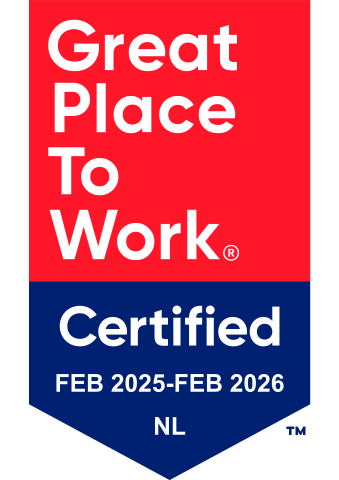The 10 worst tips for your tender process
Do you know everything there is to know about tenders and tendering? Do you also know what you absolutely shouldn’t do? In many blogs, you’ll find various tender tips with advice on how to win a tender. But in this blog, our tender management consultants take a completely different approach and present the top 10 worst tips. Use them to your advantage.
1. Don’t plan anything ahead.
Why bother? Leave it up to fate! A schedule? Overrated! There’s nothing worse than not being able to move forward because you’re missing the right input. Even worse if that “knowledge-holder” is off on holiday for a month. Plan the entire project from start to finish and schedule specific sessions for input and reviews right away. This will prevent delays because the person you need input from is on vacation, saving you from having to work late nights to bring your plan to the next level.
2. Copy-paste your way to success.
That winning entry from last time? Just copy-paste, change the name, and you’re done. Customization is for wimps. But don’t be fooled: it’s no guarantee of results. Every tender has different evaluators, a different environment, and (hopefully) different needs and contract requirements. So, make sure to customize. Past success doesn’t guarantee future wins.
3. Strategy is for chess players.
Who needs strategy? Under time pressure, it can seem tempting to jump straight into writing without a thorough analysis of the tender, the client, or a well-thought-out strategy. But lacking a strategy results in an incoherent story and ultimately creates more work later in the tender process. It’s essential to take the time for analysis and strategy to ensure your team has a shared understanding of the tender request and can create a cohesive plan and narrative. Think before you start.
4. Client? What client?
Your approach is legendary. Make it epic. Whether it fits the client’s needs or not, force it in. Too often, companies focus only on describing their own capabilities and experience without paying attention to the customer’s specific needs. Even if your Unique Selling Points seem epic, it’s far from a winning strategy. The trick is to rewrite that epic approach to answer the client’s question: Just Answer The Question! And yes, that sometimes includes that one word.
5. Rely blindly on your specialists.
Let the technical folks handle it. Thinking from the MEAT (Most Economically Advantageous Tender) plans and the client’s perspective? Not necessary! The operations or technical team knows the content and technology well and is essential for coming up with smart, technical, and project-specific solutions.
However, they may lack the commercial and ambitious thinking also required to win a tender. To win the plan, going that extra mile is necessary, and sometimes that extra mile means more work for the specialists. Not everyone is eager for that. Always involve operational and technical specialists, but don’t rely on their input and feedback alone. The same goes for team members who only look at things from a commercial angle: ensure the right balance!
6. Meetings for the sake of meetings.
Every day, for a long time, why not? Purpose and agenda? Optional.
Communication is great, especially when it comes to important decisions that need support. However, it’s important to consider who you really need for each meeting, what you want to achieve, and what the discussion points are. Each meeting must have a purpose and clear follow-up actions. Otherwise, it’s not only pointless but also, quite frankly, hopeless.
7. Invent your own substantiation or references.
Who needs facts when you have creativity?
Don’t lie in your plan. You’ll pay for it sooner or later. When writing your justifications, always stay true to yourself. This makes your measures come across as much more credible.
8. Ask 30 people to review.
The more the merrier. However, this often results in not being able to see the forest for the trees. An overload of opinions causes confusion and makes it complex to choose a clear direction. It’s more effective to limit reviews to a small, diverse group of four or five people. This way, you’ll get a range of insights and critical feedback to significantly improve and refine your text without losing focus.
9. Involve your reviewers late in the process.
Management and executives? Save their input for last. Most tenders do include a role for management and executives to provide input and feedback. A common mistake is involving them too late in the process (or having them show genuine interest too late) and/or getting feedback that doesn’t align with the tender request or objectives. This results in unavoidable feedback coming in at far too late a stage, throwing everything that seemed under control into disarray. Still stressed in that final week? Not surprising! In situations like point 2, this leads to irrelevant feedback—or worse, irrelevant feedback that makes it into the final plan simply because it came from management.
10. Submit your entry at the very last minute.
For the real thrill-seekers among us: wait until the very last moment to submit. That last-minute rush is priceless.
But all that work goes to waste if your software fails, your laptop dies, or a power outage knocks out the internet at just the wrong time. Avoid deadline stress and submit your application one working day early. That final tweak (usually) won’t determine whether or not you win the tender.
At least now you know what not to do! Want to get serious and win your tenders? Then contact Flux Partners. We’d love to work with you to see how our team of 40 tender consultants can be of value and guide your organization toward new tender success!


